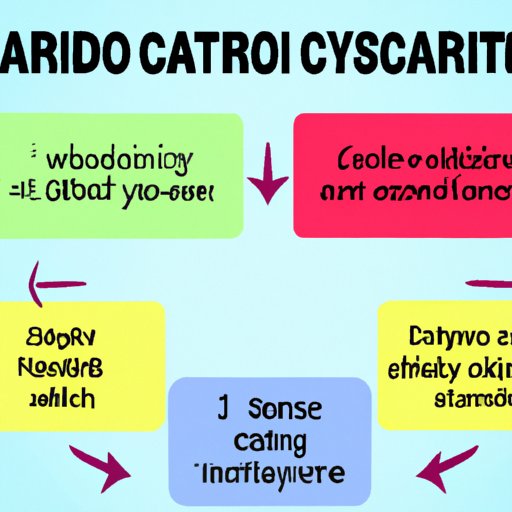
Is Cardio Good for Losing Weight?
When it comes to weight loss, there are countless approaches, from fad diets to complex workout routines. One of the most effective and accessible ways to lose weight, however, is through cardiovascular exercise, or cardio. In this article, we will explore the benefits of cardio for weight loss, debunk common myths, and provide tips on how to incorporate cardio into your weight loss plan for maximum results.
The Ultimate Guide to Cardio for Weight Loss: Why It Works and How to Do It Right
Cardiovascular exercise, also known as aerobic exercise, refers to any physical activity that raises your heart rate and improves your breathing. This type of exercise is particularly effective for weight loss, as it helps burn calories, increase metabolism, and improve overall fitness.
There are many different types of cardio exercises, including running, walking, cycling, swimming, and jump rope, among others. Each of these activities has unique benefits depending on your body type, fitness level, and personal preference.
When performing cardio exercises, it is important to start slow and gradually increase the intensity and duration of the workout over time. This will help prevent injury and ensure maximum effectiveness. Additionally, be sure to wear proper clothing and shoes and stay hydrated throughout the workout.
To make cardio exercises more fun and enjoyable, consider enlisting a workout buddy, listening to music, or taking a scenic route. Consistency is key, so try to incorporate cardio into your daily routine and set achievable goals to keep yourself motivated and on track.
Debunking Common Myths About Cardio and Weight Loss
Despite its effectiveness, there are several common misconceptions about cardio and weight loss. One of the biggest myths is that you need to do long, grueling cardio workouts to see results. In reality, shorter, high-intensity workouts can be just as effective, if not more so, for weight loss.
Another myth is that cardio exercise will cause you to lose muscle. However, this is not necessarily true – with proper nutrition and strength training, you can maintain or even build muscle while incorporating cardio into your routine.
It is also a commonly held belief that cardio is the only exercise necessary for weight loss. While cardio is certainly effective, a comprehensive weight loss plan should also include strength training to build muscle, improve overall fitness, and enhance weight loss results.
How to Incorporate Cardio into Your Weight Loss Plan for Maximum Results
To incorporate cardio into your weight loss plan, start by setting achievable goals and determining how frequently and for how long you want to perform cardio exercises each week. It is recommended to perform at least 150 minutes of moderate-intensity cardio per week, spread out over several sessions.
When starting out, it is important to listen to your body and adjust the intensity and duration of the workout as needed. Be sure to properly warm up and cool down before and after each workout, and track your progress to stay motivated and on track.
Additionally, consider adding variety to your cardio routine by trying different types of exercises or incorporating intervals or high-intensity training. This will help prevent boredom and keep your body challenged for maximum weight loss results.
The Science Behind Cardio: How It Affects Your Body and Helps with Weight Loss
There is a wealth of scientific evidence to suggest that cardio is highly effective for weight loss. When performing cardio exercises, the body burns calories and fat, which can lead to significant weight loss when coupled with a healthy diet and consistent exercise routine.
Cardio exercises also help improve metabolism, making it easier for the body to burn calories and fat even when at rest. Additionally, cardio can have numerous physical and mental health benefits, including reducing the risk of chronic diseases, improving sleep quality, and boosting mood and cognitive function.
Cardio vs. Strength Training: Which is Better for Weight Loss?
While cardio is highly effective for weight loss, it is not the only type of exercise necessary for optimal weight loss results. Strength training, or resistance training, helps build muscle, which can improve metabolism and enhance weight loss results.
For maximum weight loss benefits, it is recommended to incorporate both cardio and strength training into your routine. This will provide a well-rounded workout that targets all aspects of physical fitness and helps achieve optimal weight loss results.
Conclusion
Cardio is a highly effective and accessible way to lose weight and improve overall health and fitness. By incorporating cardio into your weight loss plan, setting achievable goals, and staying consistent, you can achieve optimal results and enjoy a healthier, happier lifestyle.
Remember to listen to your body, adjust your routine as needed, and stay motivated and inspired by seeking support from workout buddies or fitness experts. With hard work and dedication, you can achieve your weight loss goals and lead a happier, healthier life.





